Don't ignore these signs that your appliances are about to die
If any of these issues sound familiar, it might be time to buy new appliances
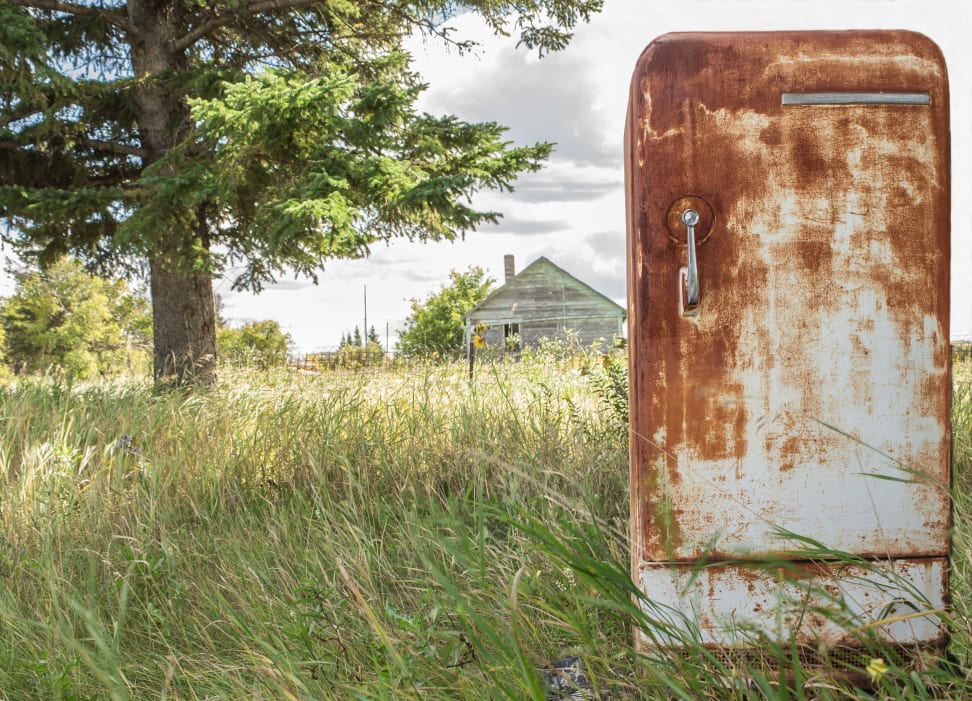 Credit:
Credit:
Recommendations are independently chosen by Reviewed's editors. Purchases made through the links below may earn us and our publishing partners a commission. Prices were accurate at the time this article was published but may change over time.
A broken home appliance can be a nightmare. Wet clothes, melted ice cream, or dirty dishes are enough to ruin anyone’s week—let alone a carefully planned budget. Wouldn’t it be great to know exactly when your appliances are about to fail?
We spoke to Tim Adkisson, director of product engineering for Sears Home Services, to find out. Adkisson manages more than 5,500 service technicians who repaired over 5 million home appliances in 2016. If there’s anyone who can tell when a dishwasher is about to start leaking or a fridge is about to stop cooling, it’s him.
According to Adkisson, there are a few tell-tale sounds, smells, and leaks that you shouldn’t ignore. If any of these sound familiar, you need to decide whether to repair or replace your broken appliance. If you do decide it's time for a replacement, check out Reviewed.com’s reviews of the best dishwashers, refrigerators, laundry, and cooking appliances before you shop for a replacement.
What’s that noise from the washing machine?
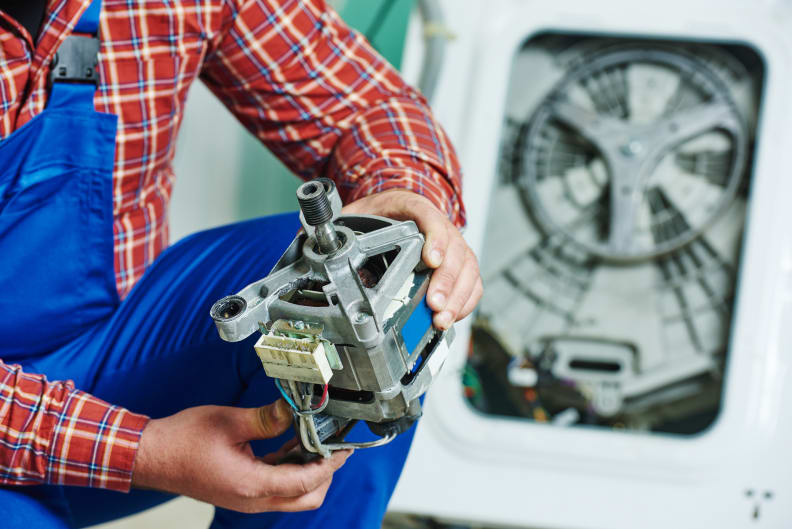
If your washer needs a new motor or gear case, it might be time to replace it instead.
Noise is the number one “tell” that a washing machine is about to break. A grinding sound of metal-on-metal is a sign of issues with a bearing or a gear case. “It’s a nasty, nasty noise profile and it’s loudest in the spin cycle,” Adkisson said.
Though it’s possible to repair a bearing, it’s so expensive that it might be worth it to buy a new machine. The same goes for a washer that overflows.
Leaks are also a concern. Though a small leak at the rear of a washer might be easy to repair by replacing a hose, larger amounts of water are indicative of a major issue. Even if it’s possible to repair a leaky washer, water may have damaged the machine’s electrical system, which could lead to more problems down the road.
Is the dryer worn out?
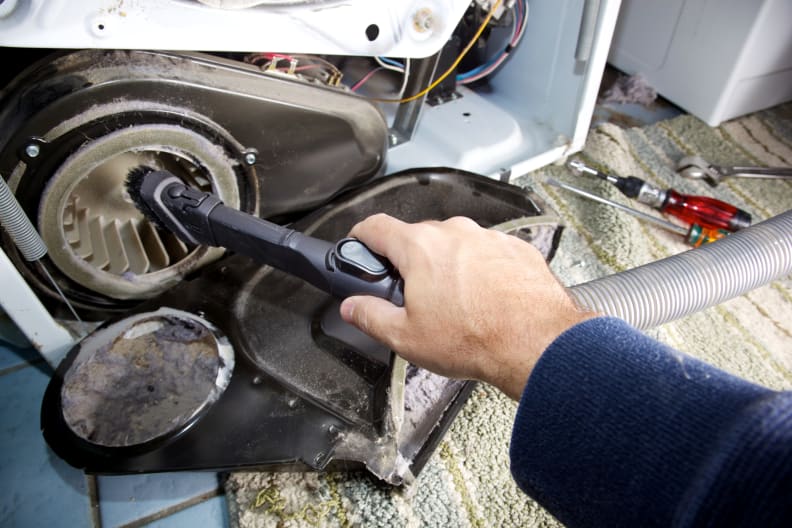
A dryer that's clogged up with lint can greatly shorten its lifespan.
Adkisson said that the lifespan of a clothes dryer is greatly influenced by how you treat it. “The harder you make the product work, the harder you’re pushing its design limits, the shorter amount of time it’s going to work,” he said.
If you run your dryer several times a day or let lint build up in your dryer vent instead of cleaning it, your machine is already worn out, and a minor repair might not be worth it. And if your dryer starts smoking, it’s definitely time to replace it.
One thing you shouldn’t worry about is surface rust. Laundry rooms are damp environments, and rust happens. “If it’s not degrading your performance and it’s not affecting your clothes, I’d ride with it,” he said.
Dishwasher not washing?
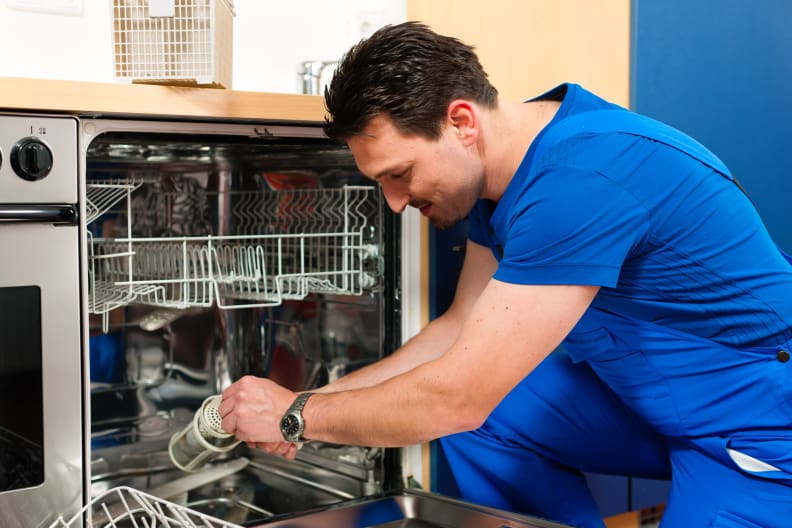
Sometimes, fixing a dishwasher is as simple as cleaning the filter yourself. But other repairs are more complex.
Dishwashers are complex machines. As such it can be difficult to diagnose what’s wrong with one.
To start, make sure the filter is clean, and see if there’s an error code displaying on the dishwasher’s control panel. Your owners manual will help you decode what’s wrong, and repairs may be inexpensive.
But other problems can be a lot more serious. “If you ever have a tub that’s physically leaking? That’s a huge issue. That’s it,” he said. “It’s dead in the water, literally.” Similarly, if the door gasket is undamaged but the door is dripping water or letting out steam, it can be a sign that the door is warped. That’s when it’s time to replace your dishwasher.
Is your refrigerator running?
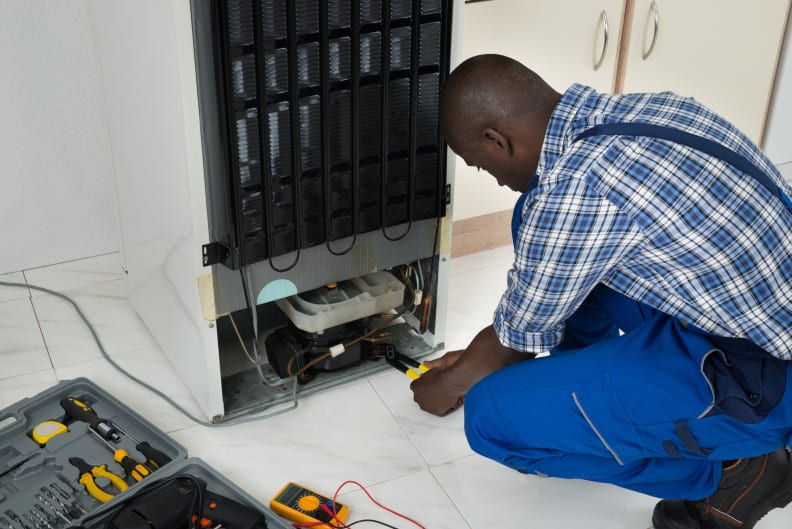
Replacing a condenser can cost upwards of $500. It might be worth replacing a less-expensive fridge.
There are two things Adkisson looks at when evaluating a refrigerator: Noise, and cooling performance.
Any rattling or other noises that are suddenly louder than before tend to be the sound of a compressor failing. It’s possible to replace a compressor, but it will generally cost over $500.
If a refrigerator gradually—or suddenly—stops cooling, and there’s no physical damage to the fridge or dust built up on the coils or vents, it might be a sign of a leak. That would require a significant repair.
“For me to crack the guts—I can do it, and I can be very successful in doing it, but it’s going to be expensive,” Adkisson said. In other words, it might be time to buy a new fridge.
Ovens rarely go wrong
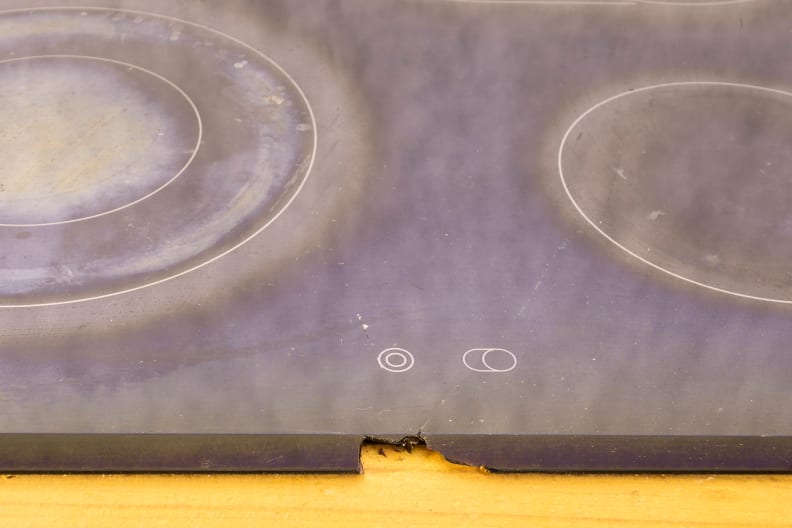
A broken ceramic cooktop can't be replaced. If yours looks like this, it's time for a replacement.
“For the most part, cooking is a straightforward category in terms of repair, and you get good performance after the fact,” Adkisson said.
If a burner isn’t heating up or if the temperature is off in your oven, it usually means that a gas valve, electric sensor, or thermocouple is faulty. Addison said it’s worth a repair because those components are “relatively straightforward, they’re relatively accessible, and they’re relatively cheap.”
The only exception is physical damage. If a cavity is warped, if interior shelves fall down, or if a door doesn’t fit properly, there’s little that can be done to repair an oven.
Similarly, if a glass cooktop cracks or stops working, it’s time to replace the whole unit. “It’s very durable, and very strong glass—but under the right circumstances it can be damaged, and when it’s damaged it’s kind of a done deal,” Adkisson said.





